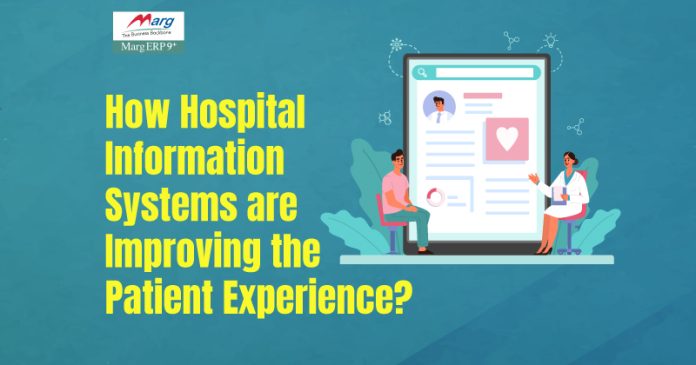When one thinks of going to the hospital, one picture long waits, tedious paperwork, and repeating the medical condition and history to every new doctor. With hospitals under pressure to provide high-quality care and achieve better health outcomes, things are changing rapidly.
Today, technology is helping to make healthcare more accessible and patient-friendly. The global healthcare IT market size was pinned at USD 663 billion in 2023 and is expected to grow at a CAGR of 15.8% annually till 2030.
Technology is at the heart of nearly every industry, and healthcare is no exception. Healthcare providers are increasingly relying on advanced healthcare management solutions to improve their operations.
A Hospital Information System (HIS) is a digital tool that helps healthcare facilities meet their goals worldwide. It automates routine processes, provides real-time insights, and improves inter-departmental workflows and communication.
Besides making hospital operations seamless, reliance on technology also helps craft better experiences for patients and substantially contributes to patient satisfaction. For instance, the HIS software helps your physician craft treatment plans that are tailored to individual patient needs with ease. Your hospital and the care staff can then ensure you receive the best and the most personalized treatment.

Another instance is the growing demand for patient engagement tools. With engagement tools that work in sync with the hospital information management system, patients can now book appointments online in advance. They can access their medical records, treatment plans, and reports anytime and anywhere. They can easily communicate with their caregivers, monitor insurance claims, or make payments. Yet another example is the detailed analytics and performance dashboards that are in-built within Hospital Information Software that helps the management analyze the operations and financial performance of your facility.
What is a Hospital Information System?
A Hospital Information System (HIS) is the digital backbone of a hospital. It’s a comprehensive software solution that manages all aspects of hospital operations. A HIS connects all departments and specialties. It streamlines clinical data, patient information, billing, appointments, and inventory, letting healthcare professionals operate with ease.
The global hospital information system market is experiencing significant growth. According to Grand View Research, the market was valued at $115.0 billion in 2022 and with projects CAGR of 17.4%, reaching $405.6 billion by 2030.
The following are some of the ways that HIS is making the patient experience better.
1. Easy Access to Medical Records
In the past, you had to keep track of every medical record, reports and prescription, making sure that you carried them for each visit to the physician. A HIS stores your medical records electronically in a secure place; no matter the specialist you are visiting, they have instant access to your medical history.
A comprehensive HIS tracks a patient’s complete health information such as your medical history, recommended treatment, immunization, test results – x-rays, lab and radiology reports, medications, allergies, etc. EMR supports effective clinical decision-making and ensures that you receive personalized care.
2. Shorter Wait Times
No one enjoys waiting in a crowded hospital waiting room when feeling unwell. Long wait times have historically been a critical reason for dissatisfaction among patients. With a robust Hospital Management Information System, hospitals can better manage patient appointments and schedules, reducing bottlenecks.
Hospitals can accept appointments in advance, track payments made, and reduce no-shows. It also ensures that doctors and other healthcare professionals can stick to their schedules. This significantly improves the patient flow across multiple departments within the hospital.
3. Better Communication with Your Care Team

One of the most significant issues when visiting a hospital is having to repeat your medical ailments and history to the caregivers – from the receptionist to the physicians and nurses. With Hospital Management Software, one can do away with these moments of frustration. It keeps all your medical information stored in one place so that it can be accessed easily by the entire care team to make critical decisions about your health.
4. More Personalized Care
Hospital Information Systems (HIS) are at the centre of making healthcare more personalized. HIS helps to review medical histories and real-time health data. The doctors can create custom treatment plans, leading to better healthcare outcomes and a more customized approach to your care.
For example, an HIS, which is integrated with internationally recognized drug databases, can quickly flag potential issues like drug interactions or allergies. This helps prevent mistakes in administering medication and ensures your treatment is both safe and effective.
5. Simplified Billing and Insurance
Medical billing and insurance management can be complicated and time-consuming for patients and healthcare providers. A Hospital Information System (HIS) simplifies these tasks for providers through automation and integration. It streamlines revenue management by connecting with insurance companies for faster, more efficient claim submissions. This cuts down paperwork and accelerates reimbursements.
By automatically checking claims against treatments and coverage, HIS reduces the risk of denials. Patients benefit from this, receiving clear, itemized bills that are easy to understand, improving their overall experience with the financial side of healthcare.
6. Improved Data Security
With increasing reliance on technology, the security of patient data is a crucial concern. HIS systems are designed with advanced security measures such as data encryption and role-based access to protect patient information.
7. Data Analytics
Hospitals can make smarter decisions by tapping into the power of data —from predicting patient needs to improving how they manage resources and supplies. It also simplifies billing, helps control costs, and makes sure the facility stays compliant with regulations.
The Future of Patient-Centered Healthcare
Hospitals and healthcare facilities worldwide are embracing advanced technologies, and Hospital Information Systems (HIS) are at the core of this transformation. There is a definite focus on making the patient experience better. From reduced wait times to more personalized care, HIS is shaping a future where healthcare is faster, more convenient, and tailored to individual needs.
If you’re interested in exploring how a Hospital Information System can make a meaningful difference in your hospital, consider requesting a detailed demonstration from trusted technology partners. Making a well-informed decision is essential in selecting the right software to optimize both operations and patient care. A comprehensive Hospital Information System streamlines workflows, reduces administrative work, and improves communication between departments. It allows healthcare providers to deliver more personalized care. Hospital Information Software supports faster decision-making and better resource management by automating routine processes and providing real-time data. A comprehensive hospital software system can make your hospital a more efficient, patient-focused facility ready to meet modern healthcare challenges.
Read More:-
- What is GSTR 9 and How a Pharmacy Billing Software Keeps You GST Compliant. Managing GST compliance can be tricky for pharmacy owners, especially with multiple purchase bills, supplier returns, and input tax credit tracking. GSTR-9, the annual GST return, brings all these details together for a complete yearly… Read more: What is GSTR 9 and How a Pharmacy Billing Software Keeps You GST Compliant.
- What is an Invoice Management System and How Marg ERP Keeps You GST Compliant. GST is going through a lot of changes and evolutions in recent months from GST 2.0 announced on 3rd September 2025 (effective from 22nd September 2025) to GSTR-9 Table 8A update in IMS (Invoice Management… Read more: What is an Invoice Management System and How Marg ERP Keeps You GST Compliant.
- Section 122 of CGST Act Simplified: Stay Penalty-Free with Marg Billing Software Section 122 of the Central Goods and Services Tax (CGST) Act deals with penalties and offences under GST law. It is aimed at curbing non-compliance such as false invoicing, mis‐claiming input tax credit (ITC), suppression… Read more: Section 122 of CGST Act Simplified: Stay Penalty-Free with Marg Billing Software
- Section 46 of the CGST Act & the GST 2.0 Era: Why Compliance Can’t Wait Compliance is the most important part of today’s business. It enhances company’s reputation, minimises financial and regulatory risks, and improves overall operations and financial management. Therefore, you need to have a solid understanding of Sections… Read more: Section 46 of the CGST Act & the GST 2.0 Era: Why Compliance Can’t Wait
























